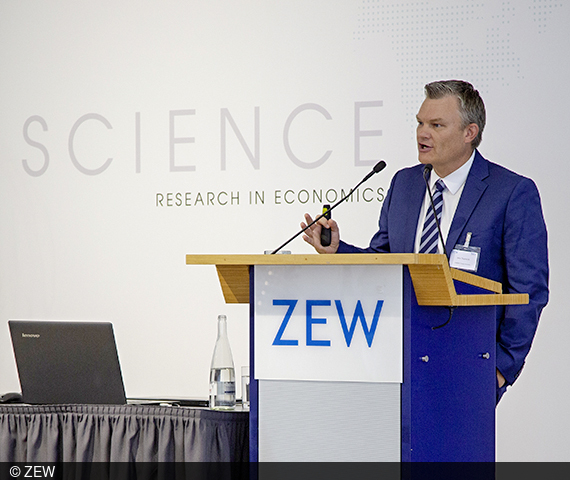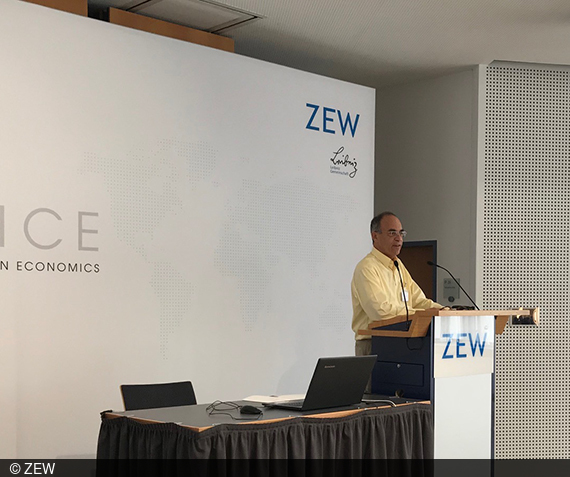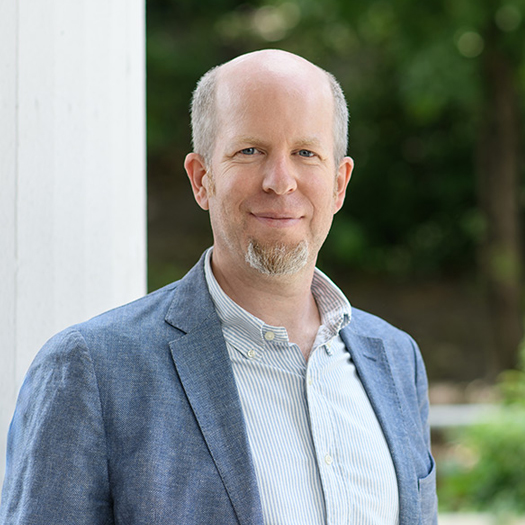International Tax Researchers Gather in Mannheim
ConferencesSixth Annual MannheimTaxation Conference at ZEW
The Leibniz ScienceCampus “MannheimTaxation”, a joint initiative by ZEW and the University of Mannheim, examines how a sustainable tax system must be designed in order to meet new economic and social challenges. In September 2019, the sixth annual MannheimTaxation conference took place in Mannheim, where almost 80 participants from all over the world discussed current work in the field of tax research.
The ScienceCampus, which has established itself in the area of tax research, was able to win US professors Alan Auerbach from the University of California at Berkeley and Jake Thornock from Brigham Young University in Provo/Utah as keynote speakers. The total amount of 36 top-class lectures held in twelve sessions also illustrate the international reputation the MaTax team has built up over the years.
New perspectives in measuring inequality
Alan Auerbach, professor of tax policy and public finance at the University of California at Berkeley, USA, presented a recent research paper on measuring income and wealth inequality and the redistributive effects of income taxes and social transfers. Currently, inequality and redistributive effects are mostly measured in a cross-section of one year. However, since both variables are strongly age-dependent, these cross-sectional results should be interpreted with great caution. For example, although students have temporarily low incomes, they are generally among the higher earners over the course of their lives. Similarly, in a pay-as-you-go pension system, income is transferred from current workers to pensioners; however, redistribution mainly takes place between age groups and not so much between income groups, since the current contributors become the future pensioners. On the basis of US data, Professor Auerbach and his two co-authors investigated these age effects as well as the inequality in consumption and the redistribution effect of the tax and transfer system over the (remaining) life cycle for different birth cohorts. The results show that inequality is thus significantly lower. For example, the top one per cent of forty-year-olds today accounts for 34 per cent of total financial assets, but only for 15 per cent of the remaining consumption of their birth cohort. The redistributive effect of the tax and transfer system is also much stronger when the whole life cycle is considered.
An overview of research on corporate tax avoidance
In the second keynote speech, Jake Thornock, EY Distinguished Professor of Accounting at Brigham Young University, USA, gave a comprehensive overview of the latest findings on corporate tax avoidance. He identified numerous future research fields and in particular illustrated the steady deterioration of the explanatory power of conventional determinants. He discussed a variety of reasons for this deterioration and underlined the importance of company-specific, unobservable components when it comes to explaining corporate tax avoidance. An important theme of his keynote was the fact that the most widely used indicator of corporate tax avoidance – the effective tax rate – is also influenced by other factors that are independent of tax avoidance. These include accounting rules that may lead to short-term changes in the tax burden of companies, increasing market concentration in some industries or anomalies in the distribution of effective tax rates. In his conclusion, he made the appeal that the analysis of these complex interrelations should not only deal with apparent correlations, but also always take into account the underlying economic mechanisms.
MannheimTaxation promotes international scientific exchange
As in previous years, the sixth annual MannheimTaxation conference offered the opportunity for in-depth scientific exchange at a high level. In his welcoming address, ZEW Research Associate and MannheimTaxation Director Professor Christoph Spengel expressed his satisfaction with the continued success of both MannheimTaxation and tax research in Mannheim. The recently successfully acquired further funding period of MannheimTaxation also illustrates the ScienceCampus’ excellent reputation. In this context, numerous MannheimTaxation events are planned for the coming year. MannheimTaxation is funded jointly by ZEW, the University of Mannheim, the State of Baden-Württemberg and the Leibniz Association. The ScienceCampus further collaborates with the Institute for Financial and Tax Law of Heidelberg University.


